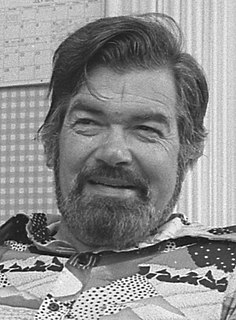A Quote by Thomas Hobbes
By consequence, or train of thoughts, I understand that succession of one thought to another which is called, to distinguish it from discourse in words, mental discourse. When a man thinketh on anything whatsoever, his next thought after is not altogether so casual as it seems to be. Not every thought to every thought succeeds indifferently.
Related Quotes
The moment our discourse rises above the ground-line of familiar facts, and is inflamed with passion or exalted thought, it clothes itself in images. A man conversing in earnest, if he watch his intellectual processes, will find that always a material image, more or less luminous, arises in his mind, contemporaneous with every thought, which furnishes the vestment of the thought.... This imagery is spontaneous. It is the blending of experience with the present action of the mind. It is proper creation.
Real, constructive mental power lies in the creative thought that shapes your destiny, and your hour-by-hour mental conduct produces power for change in your life. Develop a train of thought on which to ride. The nobility of your life as well as your happiness depends upon the direction in which that train of thought is going.
I Have often thought if the minds of men were laid open, we should see but little difference between that of the wise man and that of the fool. There are infinite reveries, numberless extravagances, and a perpetual train of vanities which pass through both. The great difference is, that the first knows how to pick and cull his thoughts for conversation, by suppressing some, and communicating others; whereas the other lets them all indifferently fly out in words.
There is a thinking stuff from which all things are made, and which, in its original state, permeates, and fills the inter spaces of the universe.
A thought in this substance, Produces the thing that is imaged by the thought.
Man can form things in his thought, and by impressing his thought upon formless substance, can cause the thing he thinks about to be created.




































